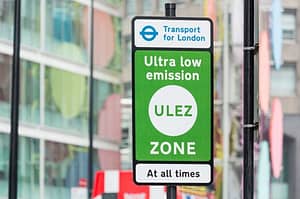The UK automotive sector has today urged all political parties to adopt five pledges and supercharge its competitiveness as part of a dedicated industrial strategy – with a £106 billion prize up for grabs from now until the end of the next parliament. A commitment to transforming automotive production, giving confidence for all drivers to go electric and upskilling our workers, combined with making sure British vehicles can be sold globally, and driving down the cost of clean energy, would unleash the sector to lead the UK’s net zero revolution.
Launching “Manifesto 2030: Automotive growth for a zero emission future” at its annual International Summit in London, the Society of Motor Manufacturers and Traders (SMMT) called on every party to recognise the strategic importance of the sector to the UK and create the conditions for a 10-fold rise in annual battery electric vehicle (BEV) production to more than 750,000 units per year by 2030. This would equate to a cumulative £106 billion worth of products at factory gate.
Such growth, however, is contingent on British plants attracting the next generation of electric models and scaling up an emerging EV supply chain, a process which puts the competitiveness of the sector into focus. As the sector consolidates its post-pandemic recovery, with sustained growth in new vehicle registrations, production output and manufacturing jobs – up 4% to a total of 208,000 jobs in the last year – it faces fierce global competition as other countries offer huge cash incentives and subsidies to attract green manufacturing.
The threat of tariffs from tougher local content rules under the UK-EU trade deal, which come into force in just six months’ time, would further disadvantage the industry. If not addressed, it would make British-built electric vehicles uncompetitive in our biggest export market, while pushing up EV prices for British buyers just as the UK and EU try to accelerate their uptake.
Inflationary pressures also loom large, with more than 80% of companies responding to SMMT’s latest automotive business confidence barometer reporting rising input costs, which are limiting profitability and acting as a brake on investment, despite an increase in orders and output.3Furthermore, competitive energy prices are critical to long-term domestic EV production, with more than nine-in-10 firms citing the importance of energy price mitigation measures as essential to further investment. The UK automotive sector faces electricity costs more than double those of EU rivals, with the added challenge of long lead times to secure essential new grid connections for renewable investments.






Leave a Comment